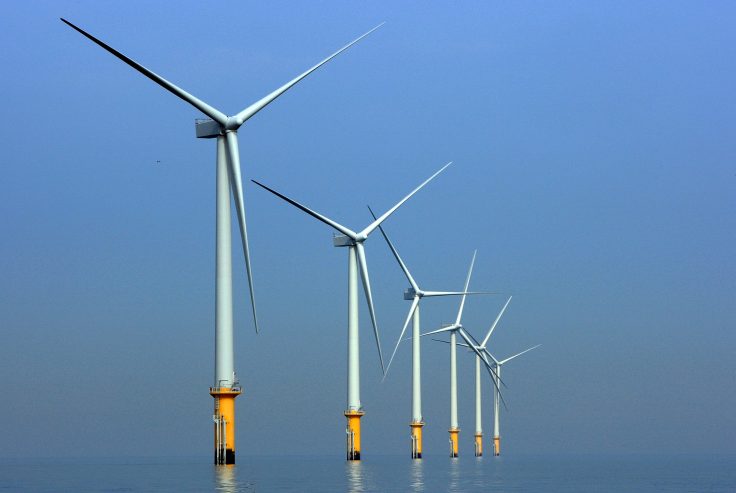Biden-Harris Admin Pauses Oregon Offshore Wind Program One Month After Championing It as a Green Energy Success Story
Oregon lease sale cancellation is latest black eye for Biden-Harris admin’s green goals

The Biden-Harris administration cited the “undeniable enthusiasm for a clean energy transition” while announcing an offshore wind lease sale in federal waters off the coast of Oregon last month. But just weeks later, federal officials were forced to indefinitely postpone the sale due to a lack of industry interest.
According to the Bureau of Ocean Energy Management, five energy companies qualified for the Oregon lease sale, but just one company showed interest in participating. That announcement came Friday, less than a month after the Department of the Interior issued a final sale notice for the auction on Aug. 29 and two weeks before the auction was set to take place in mid-October.
The unexpected delay deals yet another blow to the administration’s lofty green energy goals, particularly those pertaining to offshore wind development, which have seen a number of economic and supply chain setbacks since late 2023. It represents an embarrassing outcome after top officials proudly proclaimed last month that the lease sale was proof of President Joe Biden and Vice President Kamala Harris’s agenda in action.
The White House also featured the sale in a press release earlier this month declaring that “President Biden and Vice President Harris’s leadership has catalyzed the nation’s offshore wind industry.”
“Since the start of the Biden-Harris administration, the Interior Department has worked diligently to support the undeniable enthusiasm for a clean energy transition that will help address the climate crisis and create good-paying, family-sustaining jobs in every corner of America,” Interior Secretary Deb Haaland said in August. “The advancement of the first offshore wind sale in Oregon marks … the administration’s commitment to building a thriving and sustainable clean energy industry.”
The lease sale, the department said at the time, proved that the administration’s “Investing in America agenda is growing the American economy from the middle out and bottom up.”
The sale also featured prominently in the administration’s five-year plan to rapidly scale up offshore wind development in federal waters along the nation’s coasts and the Gulf of Mexico. Haaland unveiled that plan in April, saying it would provide important predictability for wind energy developers. Those developers ultimately showed no interest in the Oregon lease sale.
“Germany is dismantling part of its wind portfolio to expand operations at a coal mine because wind has failed. The UK announced a 10% increase in electricity for 2025 because wind has failed there, too. There is no country on earth which has pushed wind where the consumer has benefitted with lower costs and a more reliable grid,” Daniel Turner, founder and executive director of energy advocacy group Power The Future, said in a statement to the Washington Free Beacon.
“Sadly, the current administration is too busy navel gazing to see the reality: wind does not work, and more money and greater expansion will not change anything,” Turner continued. “We should learn from our European friends. Wind is an expensive failure.”
Overall, as part of the lease sale, the federal government was set to auction 194,995 developable acres across two separate lease areas located in the Pacific Ocean, miles off Oregon’s southwestern coastline. The Bureau of Ocean Energy Management said the area would be able to have a total power capacity north of 3.1 gigawatts and generate enough electricity to power more than a million homes.
That capacity was expected to help the administration meet its goal of delivering 30 gigawatts of utility-scale offshore wind power by 2030, which Biden set shortly after entering office in 2021. Since then, regulators have rubber-stamped 10 projects with a total capacity of 15 gigawatts of power capacity. Just a handful of offshore wind projects are operational, producing less than 1 gigawatt of total power.
The Friday postponement, meanwhile, came just two months after the administration axed an offshore wind lease sale that was slated for the Gulf of Mexico later this year. Only a single company expressed interest in bidding for leases to be offered in that auction.
Multinational energy developer Orsted axed already-approved projects off the coasts of New Jersey and Delaware in late 2023 and early 2024, citing poor economic conditions.



